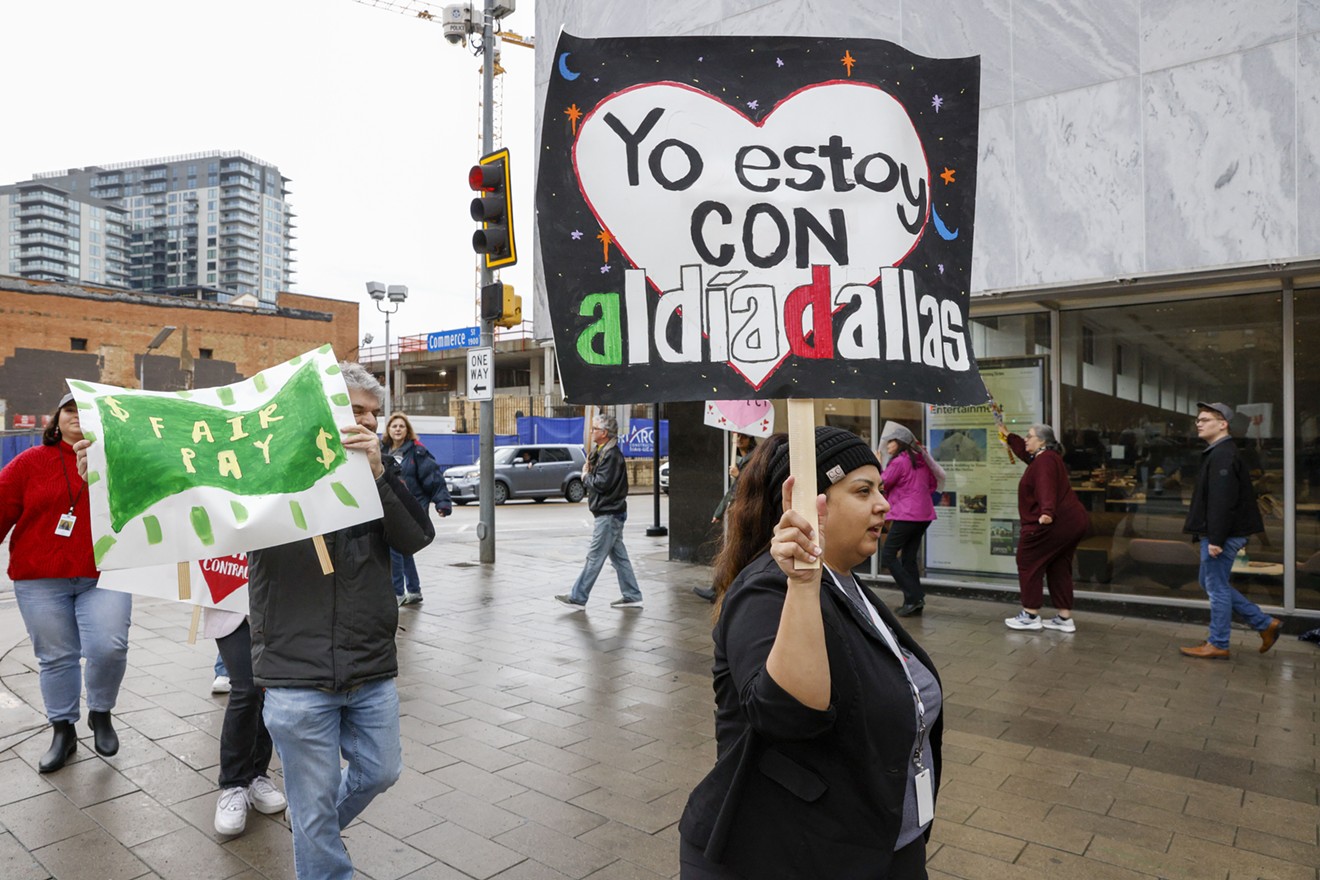Al Día, the Spanish language newspaper published by the News for the last 19 years, lost all five of its staff members. All have been reassigned to other sections of the paper, according to an email sent by Executive Editor Katrice Hardy to the newsroom staff on Wednesday.
Al Día will continue as a weekly section starting next month, but the five journalists who run it will be folded into the main paper's staff, where they'll contribute to both papers' sections along with translations of news stories in Al Día.
"It made sense on paper," says Leah Waters, the equity reporter for The Dallas Morning News' local government team and head of the Dallas News Guild union. "They had to cut costs. I get it, but if they were gonna make these changes, they should've given more notice and we should've been allowed to have more input."
Waters characterizes the decision by the paper's parent company, DallasNews Corp., as the result of years of just cutting back on various sections and reporting focuses.
The decision regarding Al Dia's direction has also been called out by the Society of Professional Journalists. The SPJ released a statement that the foundation is "disappointed" to hear the news about Al Día and hoped the newspaper's leadership would "reconsider their decision."
"The Dallas Morning News is doing what they've always done, which is cut, cut, cut, cut, cut, and there's nothing left," Waters says. "They hit bone and now they're chopping limbs."
A noticeable number of staff reporters and newsroom members set up a picket line outside the newspaper's headquarters on Commerce Street on Tuesday as an "informational picket" to make their objections to the Al Día decision known and as a "protective collective action" surrounding wages and issues with contracts that would give some "people some life-changing raises," Waters says.
"The picketing wasn't only about the Al Día issue," Waters says. "This comes at the end of us bargaining for our contract. We were at the finishing line for a deal, and then they dropped a bomb on us and we wish they'd keep their eye on the ball for us."
Hardy denies that the moves are cuts and insists that "everybody's going to do the same reporting they're doing."
"These steps are being taken to double down on this coverage," Hardy says. "It is to have more coverage from this really important community. Al Día will always function the way it always has."
Waters says the five journalists reporting for Al Día make significantly less money than those in the general newsroom and were not treated in a professional manner. She called the handling of the situation "really cruel."

The Dallas Morning News has reassigned staff of its Al Día Spanish language newspaper to its general newsroom.
Elias Valverde II
Hardy says she didn't know what Waters was referring to in terms of any "cruel" actions and that she "can't speak to that." She also said she couldn't speak about staff salaries and contracts because it's a "separate matter."
Meanwhile, the editors with whom the Al Día reporters were reassigned to work did not get enough advance notice so they could figure out how to work them into their sections and coverage areas. For some of them, Spanish is their first language, Waters says.
"They're not really sure what to do with them," Waters says. "This was thrust upon them, too. There's not a clear direction moving forward, which makes those workers feel terrified. It is incremental. It is death by a thousand paper cuts."
Waters says the newspaper chiefs' cited industry salary trends for Spanish language journalists and newspapers as the basis for its wages.
Hardy also noted in her staff email that Latinos and Latinas are the largest ethnic group in Dallas-Fort Worth and that Dallas is the "sixth-largest Hispanic metropolitan area."
"Hopefully with this new structure," Hardy says, "we're able to have a greater footprint in DFW with more enterprise stories and all the aspects of the Hispanic community."
Waters says their readers won't see it that way.
"She won't be the one reading or reporting it," Waters says. "So she can't really say that."












